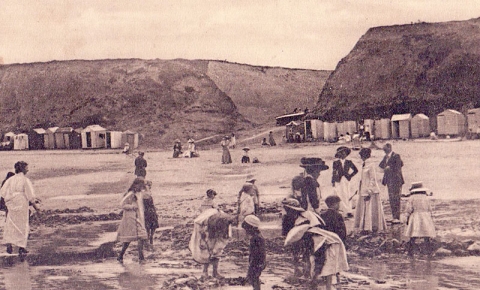Rockpooling
Rockpooling
Norfolk’s only rockpools occur in the Late Cretaceous chalk and flint deposits at the foot of the cliffs in West Runton.
The chalk reef is now the biggest in Europe and accessible at low water. Twice a day they are submerged by the rising tide and twice a day they are exposed as the tide retreats.
The wildlife that inhabits the rock-pools must therefore cope with a wide range of environmental conditions including high salinity, changing temperature, water pressure, dessication, rough seas and being confined to small pools with potential predators.
The rock pools at West Runton are inhabited by many species including serrated wrack, edible winkle, shore crab, common prawn and beadlet anemone, black squat lobsters, long-spined sea-scorpions, velvet swimming crabs, common hermit crabs and many more critters.
The best time to visit the rock-pools is on a retreating tide (at least three hours after high water), beach shoes, buckets and nets are available at the cafe.
Norfolk Wildlife Trust host many guided rock pooling and fossil hunting sessions here at West Runton, details can be found on our Events page.
Easy Guide To Rockpooling
Before you start
1. Check the tide times, it is best to go 1—2 hours before low tide.
2. Wear suitable shoes.
At the beach
3. Find a good rock pool. The best one's are usually fairly close to the sea.
4. Stand still and have a look what creatures you can see.
5. Try moving a few stones or the seaweed to see if there are things hiding underneath, but always remember to put them back.
6. Use an identification key or book to identify your creatures.
7. Don’t take the creatures away from the rockpool as they may not survive in a different part of the beach.
8. Always keep an eye on the tide.
9. Leave the area, exactly how you found it.

West Runton Beach, was voted No.1 beach in North Norfolk in 2023 by the general public!
The Rockpools here were also voted No.1 in Europe for a rockpooling day out in 2016!
Did you know people have been rock pooling in West Runton for over 200 years!
The Norfolk Wildlife Trust hold many accompanied Rock Pooling Activities throughout the year
